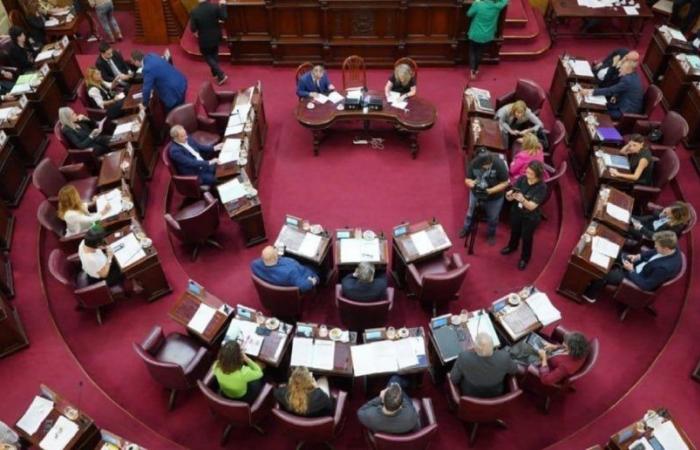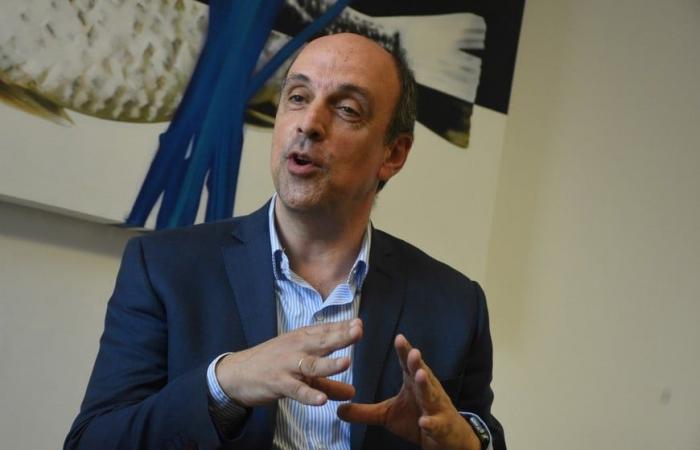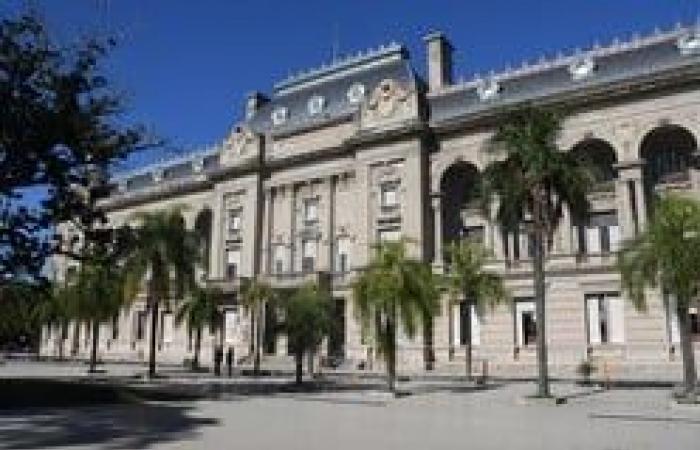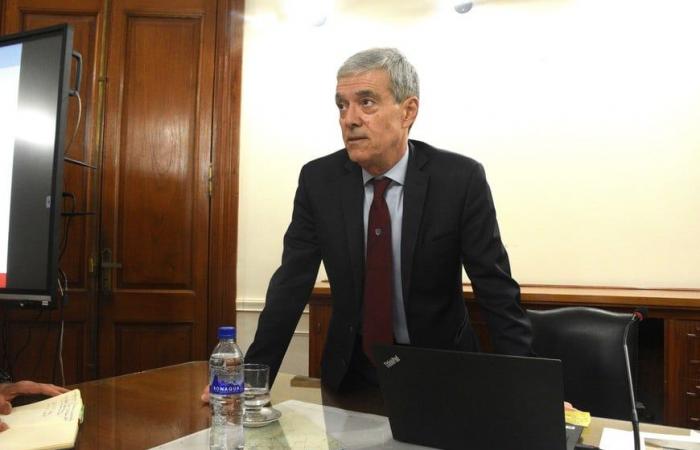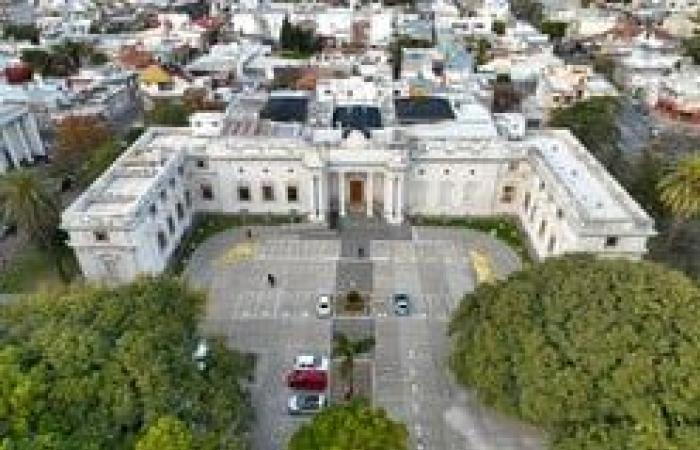Guarantee the permanence of the Retirement and Pension Fund in the orbit of the provincial State, the solidarity nature of the system; support the actions of the Executive before the Nation to finance the pension deficit provided for by law; changes in the central objective of the commission and expansion of the group’s members were the axes of the law passed by the Legislature to begin to understand the red of the pension system. The pension is one of the issues put on the table by the Executive Branch.
The Chamber of Deputies introduced several changes to the initiative originated by Senator Raúl Gramajo and that the Executive Branch authorized for Extraordinary. The Senate thought of the working commission to prepare a preliminary draft to reform the Santa Fe pension system. This Thursday he ended up accepting the change in the Deputies’ criteria.
In the Lower House, the issue required several weeks of internal discussion between the political sectors of Unidos and the agreement began to take shape this Wednesday when there was a favorable opinion from the Committee on Labor, Union and Welfare Affairs where, in addition to the ruling party, legislators signed it. Justicialistas and Somos Vida. Thus the issue reached the venue where only the Broad Front for Sovereignty voted against and three Justicialists (Alejandra Rodenas, Miguel Rabbia and Lucila De Ponti) asked to abstain, as did Juan Argañaraz and Natalia Armas Bellavi. Meanwhile, the remaining 40 members present voted favorably and sent the text under review to the Senate, which received it and unanimously turned it into law.
Beyond the rejection of some state union sectors, the sanctioned norm “declares the need to address the analysis of the pension regime, guaranteeing the permanence of the Retirement and Pension Fund in the orbit of the provincial State and its solidarity nature.”
But the text of the law also marks “the support for the administrative and judicial actions carried out by the Executive Branch through the State Prosecutor’s Office before the National Executive Branch with the objective of demanding the remission of the funds corresponding to the financing of the Retirement and Pension Fund based on the provisions of the Federal Commitment in its article 12, ratified by National Law No. 25235 and the provisions of National Law No. 27260 in its article 27 and amendments, which obliges the National State to finance the deficits of the provincial pension systems not transferred”.
Then, yes, it provides for the creation in the legislative sphere of the commission “which will have as its objective the study, preparation and writing of a report regarding the sustainability of the pension regime in force in the province of Santa Fe.” This commission will be chaired by the heads of the Constitutional Affairs and General Legislation commissions of both chambers (Rodrigo Borla, President Senate, and Pablo Farías, Vice Deputies). In addition, six senators, eight deputies, four representatives of state workers and four others from the Executive Branch.
“The Commission will have all the necessary powers to fulfill its mission, and may require reports from public or private entities, summon public officials of any rank or who work in areas related to the subject, and will keep records of its meetings and the information that it collects. It may also call any person or association that, due to its knowledge on the matter, can make a contribution for the better development of the Commission’s work,” states article 6. The following establishes a period of 45 days for its mission, with the possibility of extension by the commission authorities.
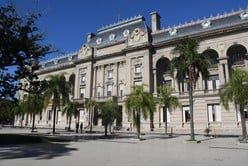 See alsoThe government of Santa Fe opens the game to try to advance the pension reform
See alsoThe government of Santa Fe opens the game to try to advance the pension reform At the time of the substantiation, Palo Oliver (FAS) presented the negative vote of the bench, for several reasons, among them the low union representation when there are 16 Santa Fe state unions; for understanding that the commission aims to share the cost of modifying the pension system and marking job insecurity as another of the items in the sector’s deficit. De Ponti, on the other hand, asked for abstention because he understood that there were marked inequalities in the project.
On the other hand, Maximiliano Peralta (Somos Vida), Joaquín Blanco (PS), Walter Agosto (PJ) and José Corral (UCR) presented the arguments that led to forming a solid majority when approving the new text. “I hear it said that the Fund should not be touched, it is not like that, there is a colossal deficit and we must address the problem,” said the first. “The area of discussion is the commission, we will not rule on a project,” he clarified to compare the current situation with the convertibility at the end of the last century when no one wanted to deactivate it until the outbreak occurred.
Blanco was in charge of specifying the scope of the changes introduced by the Labor Commission and insisting that “there will be no opinion on reform” but that all available information will be sought, the consultation will be opened not only to the four representatives of state unions but to all interested parties and also experts in the field. “We must prepare a technical report, with several working hypotheses,” not failing to mention that 70% of the deficit must be resolved by the national government and that it has not done so in recent years.
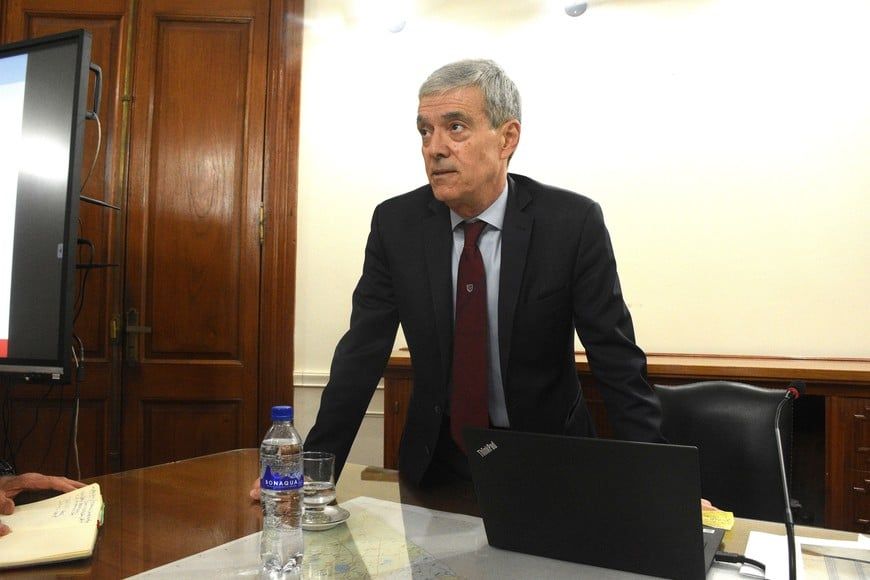 August, opposition support for the commission. Credit: Guillermo Di Salvatore
August, opposition support for the commission. Credit: Guillermo Di Salvatore “It is important that the commission guarantee plurality of opinions,” said Agosto, who called for work to prepare a reliable report, without clichés to -remember- with figures, that the system’s deficit is historic. For Corral, it is central to make the system sustainable on which 100 passive people depend today while 210 thousand contributors aspire to have a dignified old age. The radical said that work should be done on several items: contributions, age, mobility, calculations, maximum limits, etc. Before closing, he recalled that the last major pension reform was in 1996 and in almost 30 years “things have happened.”
After the vote of Deputies, the Senate took up the issue and sanctioned it unanimously with arguments presented by the entire political spectrum.
The June deficit of this year of the Retirement Fund, through bonuses, would reach 40 billion pesos. Walter Agosto presented the reds for that month updated by inflation in recent years. Thus in 2017 it was $38 billion; 2018: $45 billion; 2019: $52 billion; 2020: $55 billion and 2021 $65 billion.
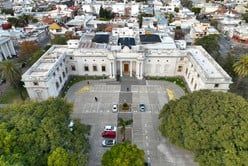 See alsoThe number of those who begin the process to retire in the Caja of the province of Santa Fe doubled
See alsoThe number of those who begin the process to retire in the Caja of the province of Santa Fe doubled Meanwhile, José Corral stated that the $40 billion would be used to make 40 kilometers of new routes; build 8 schools or the new bridge between Santa Fe – Santo Tomé.
“The extension of the FER is essential to achieve productive development and the inhabitants of the rural areas of our province. Thanks to this Law, many small towns and rural areas can access quality electricity, with fewer outages and problems of supply,” said Dionisio Scarpin, regarding the rule that extends the validity of the Rural Electrification Fund until 2036.

